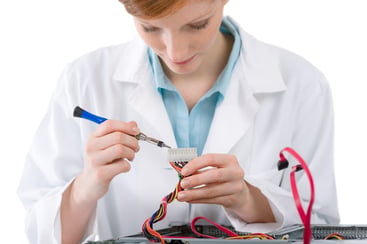 Device Preventive Maintenance can quickly be forgotten, especially in the hectic hospital environment. Some devices can continue to work fine even after the maintenance required date - like when you drive your car for a year with the check engine light on. So, does preventive maintenance really matter all that much?
Device Preventive Maintenance can quickly be forgotten, especially in the hectic hospital environment. Some devices can continue to work fine even after the maintenance required date - like when you drive your car for a year with the check engine light on. So, does preventive maintenance really matter all that much?
In short - YES, because it ensures that your device will function as intended through the course of its useful life. However, if you're still not convinced, take a look a these 5 reasons why you should make sure routine PM is completed.
1. The Patients
The primary mission of all hospitals is to deliver the best possible care to its patients. When equipment is out of service because of lack of PM this means it cannot be used to treat patients that may require the technology. PM can maximize equipment uptime and makes sure it will function as intended when it's in use.
2. Avoid Unexpected Service Costs
When a unit goes down, often it can be sent to the manufacturer for repair. However, if the issue is that preventive maintenance was the source of the issue, you have now incurred an unexpected service cost and increased the downtime on the device as you wait for the repar. In addition, while many companies offer service plans that can minimize the unexpected costs and downtime, these plans often do not cover preventive maintenance.
3. Contribute to Staff Happiness
How frustrating is it to go and use a piece of equipment only to find out it doesn't work? Especially in a hospital, clinicians need the equipment to work each and everytime. If they have to continually seek out the "one working unit" frustrations may mount.
4. Maximize Efficiency
You may be able to help maximize efficiency for the clinical staff as well. If units aren't going down; then they are ready to go when needed.
5. Minimize Equipment Backlog
So, if you're still reading you've probably run into an issue where a device wasn't available when a patient needed it, you've sent it back for the manufacturer to deal with it, and/or the clinicians are frustrated with down machines. That also probably means your device backlog is pretty lengthy as machines keep appearing in the BioMed office or storage closet with signs that read - "Doesn't Work." Developing a PM schedule and having the right parts on hand can help minimize that backlog.

